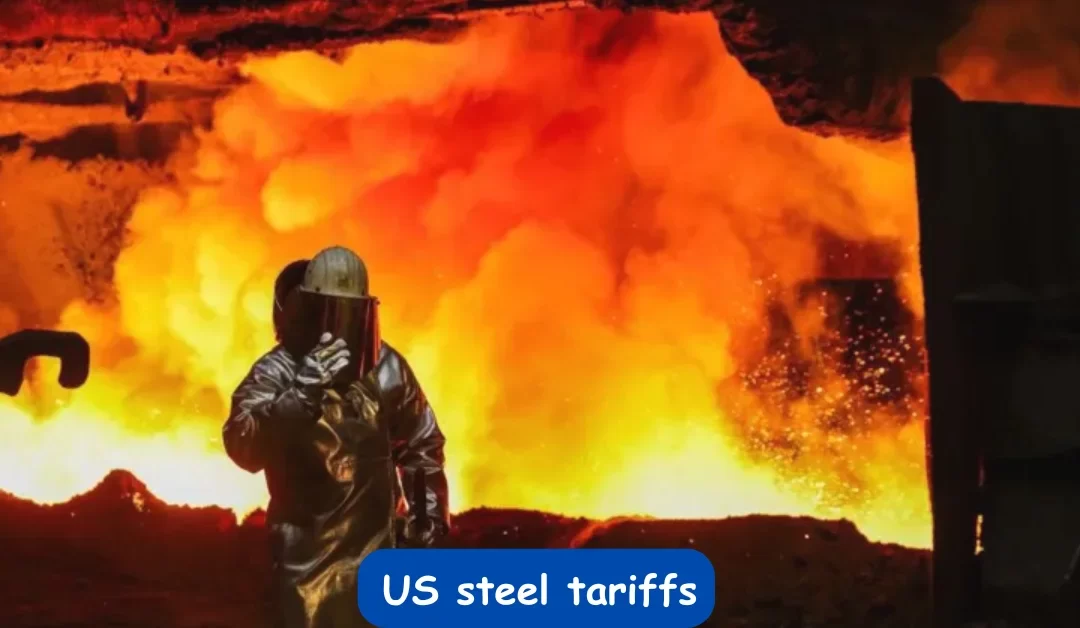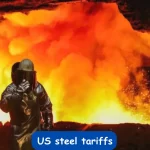Trump’s Decision to Impose Tariffs on Steel and Aluminum
US President Donald Trump has announced a 25% tax (tariff) on all steel and aluminum coming into the country. This decision is affecting major US trading partners, forcing them to react quickly.
The US imports about 25% of the steel it needs. The country depends even more on aluminum imports. Major suppliers include Canada, Mexico, and Asian nations.
Trump has confirmed that these tariffs will begin on March 12 and that there will be no exceptions for any country. Now, let’s look at how different countries are responding to this decision.
1. Canada’s Strong Opposition
Canada is one of the biggest suppliers of both steel and aluminum to the US. Because of this, the country has a lot to lose from these tariffs.
- Canada’s Industry Minister, François-Philippe Champagne, called the decision “totally unjustified.”
- He argued that Canadian steel is essential to the US in industries like defense, shipbuilding, and energy.
- Canada has said it will protect its industries and respond clearly and strongly if needed.
2. Australia Might Get Special Treatment
Even though Trump said there would be no exceptions, he might make one for Australia.
- Australian Prime Minister Anthony Albanese spoke with Trump, and the US President suggested he might consider an exemption for Australia.
- Trump explained that the US has a trade surplus with Australia because it buys many airplanes from the US.
- However, Australia is a big exporter of iron ore but not a major supplier of finished steel to the US.
3. The UK and Europe: Preparing for a Response
The UK and the European Union (EU) have expressed deep concern over these tariffs.
- The UK government said it would take a “considered approach” and negotiate with the US.
- UK Steel, a trade group, warned that the tariffs would be devastating for the UK steel industry.
- The EU President, Ursula von der Leyen, said the EU would not stay silent and would take countermeasures against the US.
- The US was the second-largest market for EU steel exports, and these tariffs could hurt European businesses and workers.
4. India’s Reaction: Not a Big Concern for Now
India exports a small amount of steel to the US compared to other countries.
- India’s Steel Secretary Sandeep Poundrik said the tariffs would not have much impact on India.
- India produced 145 million tonnes of steel last year, but only 95,000 tonnes went to the US.
- However, some industry leaders are worried that excess steel from other countries might end up in India, hurting local prices.
5. South Korea: Looking for Negotiation
South Korea is one of the top steel exporters to the US. Its major companies, including Hyundai, Kia, Samsung, and LG, use steel in their US-based factories.
- South Korea’s Trade Minister Cheong In-kyo said they are considering negotiations with the US.
- In 2018, when Trump first imposed steel tariffs, South Korea was able to get an exemption by agreeing to a yearly import limit.
- The country is now looking at possible ways to avoid new tariffs.
Why is Trump Imposing Tariffs?
President Trump believes that these tariffs will help US businesses by reducing competition from imported steel and aluminum. However, experts think this move could hurt global trade and lead to higher costs for US companies and consumers.
How Could This Affect Global Trade?
- Other countries may stop trading with the US and sell their steel elsewhere.
- The decision might cause a trade war, where other countries impose new taxes on US goods in response.
- Many experts believe these tariffs could make things more expensive for American businesses that need steel and aluminum.
The Role of Rod Blagojevich and the SAVE Act
- Rod Blagojevich, a former US politician, has criticized Trump’s tariff strategy, arguing that it could damage international relations.
- The SAVE Act, a policy aimed at protecting American businesses and jobs, has been mentioned in discussions about the tariffs. Some experts believe that focusing on policies like the SAVE Act instead of tariffs would be a better way to support the US economy.
Final Thoughts
The US steel and aluminum tariffs have triggered strong reactions worldwide. While some countries, like Australia, may get special treatment, others, like Canada, the UK, and the EU, are preparing to fight back. India and South Korea are taking a more cautious approach, waiting to see how the situation develops.
The next few months will be crucial in determining whether these tariffs improve the US economy or create bigger problems for international trade.































